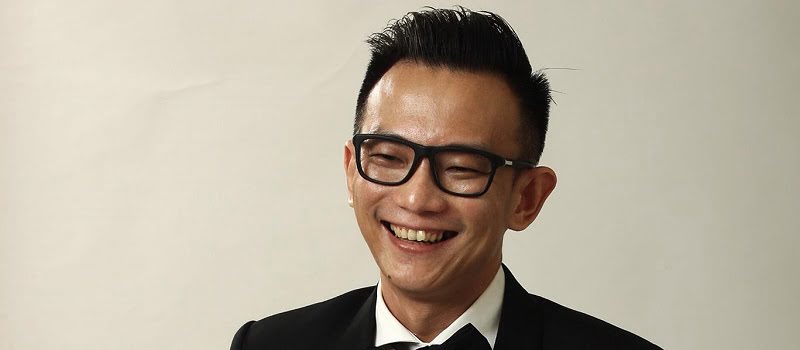Retirement Readiness: The Main Concerns For Malaysians In Their 20s, 30s & 40s

Table of Contents
Nobody likes the thought of going broke in retirement, but for many Malaysians, such fears are disturbingly real. Close to 90% of Malaysian workers worry about not having enough for retirement, a 2015 HSBC survey of 16,000 people revealed.
The survey, titled The Future of Retirement, A Balancing Act, found that an alarming 53% of Malaysian retirees surveyed said they regretted not having started saving for retirement earlier.
Some 21% of these retirees felt that they needed to start retirement planning by age 30 to maintain their current standard of living. Meanwhile, about 5% predicted they would not be able to fully retire from paid employment.
These statistics have no doubt had many Malaysian workers ill-at-ease, so what are they doing to ensure the sustainability and longevity of their retirement funds?
We speak to Malaysians in their 20s, 30s and 40s to gain insight on their plans for retirement, their primary concerns, and the strategies that they are taking to address them.
Starting early in their 20s
Syazwan Elias, a 28-year-old mechanical engineer from Petaling Jaya, says he does have some concerns on retirement, but has yet to put serious thought into it.
“I know I should start soon, but I keep putting it off. I’m horrible with my finances,” he admits, adding that he hopes to start serious planning by age 30.

Syazwan Elias, a mechanical engineer aged 28, says he hopes to start serious retirement planning by age 30.
However, he shares that he currently has a savings account, as well as investments with Amanah Saham Bumiputera (ASB), and an investment-linked insurance policy.
“I allocate about RM200 to RM300 per month for my savings and investments, and RM450 per month to pay for insurance,” he says.
He explains that he is currently saving up for a pickup truck, in which he plans to purchase by the end of the year to replace his dad’s 17-year-old 4×4.
“I am grateful that my grandmother already has a house for me, so it’s one less thing for me to worry about. If not, that would be my main priority to save towards,” he shares.
While Romesh Arulananda, 27, acknowledges that his EPF savings might not be sufficient to take him through retirement, the Petaling Jaya-based banker says he has no major retirement concerns at the moment.
“This could be because I feel I am still young and am able to work and save money for retirement in the future,” he says.
However, Romesh does make it a point to save for rainy days, and has purchased an investment-linked insurance policy as part of his strategy to earn additional income.
He also shares plans to purchase a home in the near future as a hedge against inflation.
Carmen Lee, 23, on the other hand, strongly believes that the best and easiest time to start planning for retirement is while we’re in our 20s.
Already, the real estate negotiator from Subang Jaya is putting her long-term financial plans into action by actively building her investment portfolio.

Carmen Lee, a 23-year-old real estate negotiator, has already started planning for retirement and wants to purchase a property in the near future.
She shares that her biggest goal currently is to acquire a property by the end of this year or early next year. “The purpose of getting a property now is to kick start my journey of accumulating assets and creating another revenue stream for my future,” Lee says.
“To prepare myself for this, I have been actively building my credit history, working hard to increase my income, keeping my financial commitments low, and paying my credit card bills on time.
“I think it is never too early to sit down and think about retirement, and the best time to get prepared is the moment we start working before we get bogged down with responsibilities like marriage and kids.”
Thriving in their 30s
De Way, a Subang Jaya-based sales executive in his 30s, says he has no major concerns about retirement due to his overall prudent financial planning as well as a decent investment portfolio.
“A typical portfolio includes insurance, properties and some shares for those who are well versed with the markets,” the father-of-one explains.
He shares that he also keeps his expenses lean year-round. “Lean means no unnecessary spending. I only spend on stuff when necessary. For example, why spend on an expensive phone when you can do the same things on an entry-level phone?”
De Way also drives an 11-year-old Toyota Camry.

Social media influencer Rebecca Saw, 34, believes in early planning and has structured her plan for wealth accumulation from her late teens.
Meanwhile, Rebecca Saw, founder and owner of a local social media consultancy firm admits that her biggest concern is money, or rather, the lack of it when she retires. Saw, 34, believes in early planning and says she has structured her plan for wealth accumulation from her late teens with hopes of obtaining a sound financial future.
Now a popular media influencer, Saw shares that her humble beginnings has taught her the importance of proper financial planning. “I started out with absolutely nothing, not a penny and had no inheritance from my family. I had to work very hard to put myself through high school and college,” she says.
She currently derives the bulk of her income from her consultancy business, and is working on growing her passive income through Forex. She also has plans to venture into the F&B industry in the near future, as well as to create new income streams as part of her wealth accumulation strategy.
While at it, Saw maintains a minimalist lifestyle and drives a 10-year-old second-hand Kancil 850 M/T. To save money, she says she gets most of her gadgets like mobile phones and cameras second-hand from her friends.

Rahimah Rahim, 31, started conceptualising plans for retirement from her mid-20s and currently makes money on the side as a Zumba instructor.
Understanding the importance of early retirement planning, Rahimah Rahim, 31, started conceptualising plans for retirement from her 20s.
“My first step (toward retirement planning) was buying a house at age 25. Although is it just a SOHO, it is located at a prime area and I am sure the value will increase over time,” the senior executive in taxation shares.
“Buying property has also forced me to learn to manage my money better. Before this, my mum would always nag me about my spending habits. She calls me “boros” (wasteful),” she says.
Rahimah, who holds a full-time position in a local oil-and-gas company, shares that she also invests in unit trusts and is making money on the side as a fitness instructor.
“Ideally, people should start planning for retirement in their 20s. It starts by learning to manage their savings and investments effectively, so they can live a debt-free and happy life,” she says.
Planning for long-term in their 40s
Newspaper features editor William K.C. Kee, 41, says that his biggest concerns post-retirement lies in the inability to cope with the rising cost of living, as well as having to make-do with the lack of proper facilities for the elderly in Malaysia.
He invests in unit trusts as part of his strategy to grow his pool of retirement funds. However, Kee says he hopes to continue working as a sub-editor, consultant or a freelance writer after he retires from work.
“It is never too early to start planning for retirement, but I hope I will still be able to work even after I retire to keep the mind active. I also hope to have the financial means to travel whenever I want and to be able to afford a comfortable lifestyle post-retirement,” he shares.
Kee, whose current financial drains include rent, transportation, fashion and travelling, says his long-term financial priorities involve saving money to buy a house.
Piano teacher Hooi Koon, 42, says she does not have any major retirement concerns as she plans to continue working for as long as she can. However, she makes sure to set money aside for old age with tools like fixed deposits and unit trusts.
She says she does not have much financial commitments aside from her monthly rent and car instalments, but is mindful of her expenses.
“I don’t indulge myself very often because I do not have a fixed salary. I always try to spend only on the things I need,” she says.
The piano teacher adds that she has no credit cards and no debts, and plans to keep it that way.
How much do you actually need?
There are no hard and fast rules to this, but one way to estimate how much you need for retirement is to annualise your total monthly expenses (minus your loan instalments and assuming you are debt-free by retirement), and to increase this number by 5% annually to factor in for inflation.
This sum is then multiplied by 15, based on the retirement age of 60 and the average life expectancy of 75.
That’ll be your expected total expenses. After that, you’ll need to work out how much you’ll need in total to invest to ensure your investment yield is enough to cover those expenses.
The key to effective retirement planning is to make sure that your retirement funds are sufficient to see you through your retirement years. This involves meticulous efforts, discipline and consistency to ensure the longevity and sustainability of your retirement funds. Obviously, the earlier you start, the better.
To get started, it is important to equip yourself with the right information on how to manage your expenses, savings and investments. Evidently from the stories shared above, the younger generation are getting savvier with their money, and are more aware of the need for financial planning. Now, it is just a matter of applying the knowledge into their finances.













